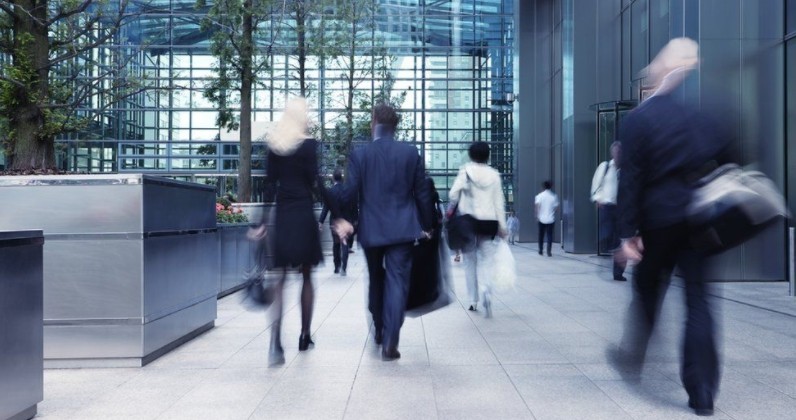
Dozens of the world’s top experts in how diseases spread have called for big improvements to the air in buildings.
They say current rules on ventilation are failing to stop infections, including Covid-19.
The problem is likened to the health crisis caused by contaminated water in Britain’s cities in the 1800s.
The appeal comes amid growing evidence that the coronavirus is often transmitted via infectious aerosols in crowded indoor spaces.
Writing in the journal Science, the scientists and engineers say that while governments have regulations on the safety of food, sanitation and drinking water, there’s far less emphasis on pathogens in the air.
They say that’s partly because it’s easier to identify a single water pipe or package of food that might be the cause of an outbreak than to track down an airborne source.
Now, the article argues, there’s evidence from studies of cases in restaurants, ships and schools that respiratory infections can be passed through the air.
This suggests that “the way we design, operate and maintain buildings influences transmission”.
While World Health Organization (WHO) guidelines on indoor air quality cover chemicals such as benzene and carbon monoxide, they do not recommend any standards for bacteria or viruses.
The conclusion is that “a paradigm shift” is needed on the scale of the reforms that helped to clean up British cities in the 19th century.
A landmark report on sanitation by Edwin Chadwick in 1842 highlighted the shocking plight of the poorest urban dwellers, many suffering from diseases caused by contaminated water.
An effort on a similarly vast scale is needed now, the experts say, to clean up the air in our buildings, cut the number of pathogens and improve health “just as we expect for the water coming out of our taps”.
One of the authors, Prof Cath Noakes, an environmental engineer at the University of Leeds, told me that we take for granted the water and sewage infrastructure that followed the Chadwick report and should think of air in the same way.
“Air quality is invisible to us so we ignore it yet it affects us day in, day out, carrying respiratory diseases which affects the probability of you getting infections,” she said.
Prof Noakes said that a “revolution” is needed in how governments regulate indoor air quality and in how the issue is handled in degree and apprentice courses.
Another scientist involved is Dr Julian Tang, honorary associate professor and clinical respiratory virologist at the University of Leicester.
“We all want to be confident that the air in our homes and the buildings and restaurants we visit is clean.”
So there’s a proposal for public places to have “ventilation certificates”, like those for hygiene.
Dr Tang says that by having that reassurance about air quality, “we will see restaurants more easily regaining diners’ trust, and employees more confidently returning to offices”.
The paper quotes estimates that improving ventilation to reduce airborne infections would add less than 1% to the cost of a typical building.
For comparison, it’s thought the global cost of Covid-19 is about $1 trillion a month. In the US alone, influenza is estimated to cost $11.2bn a year.
According to Prof Noakes, investments in good ventilation might seem high but “it’s likely to lead to fewer people being off sick”.


